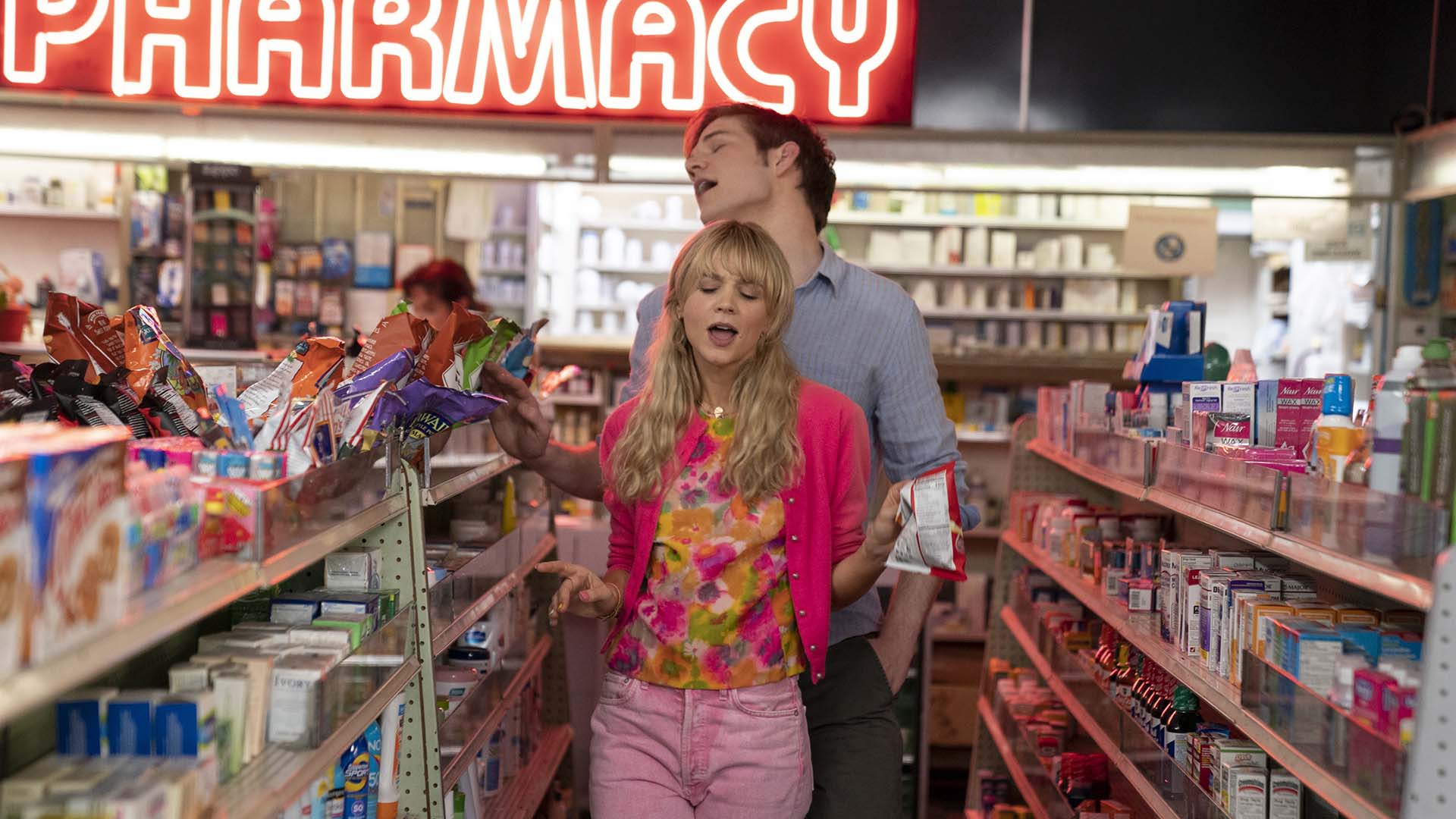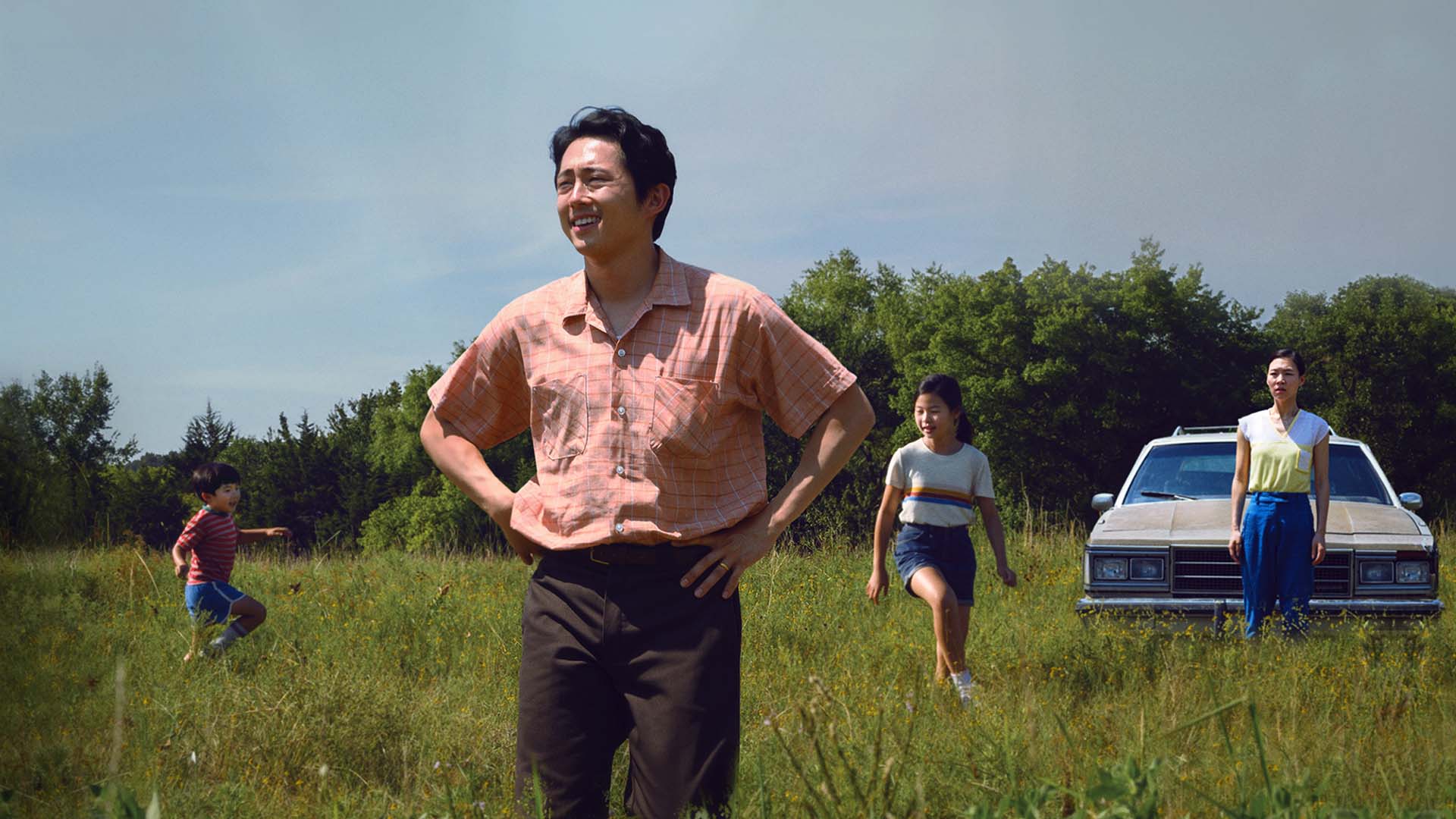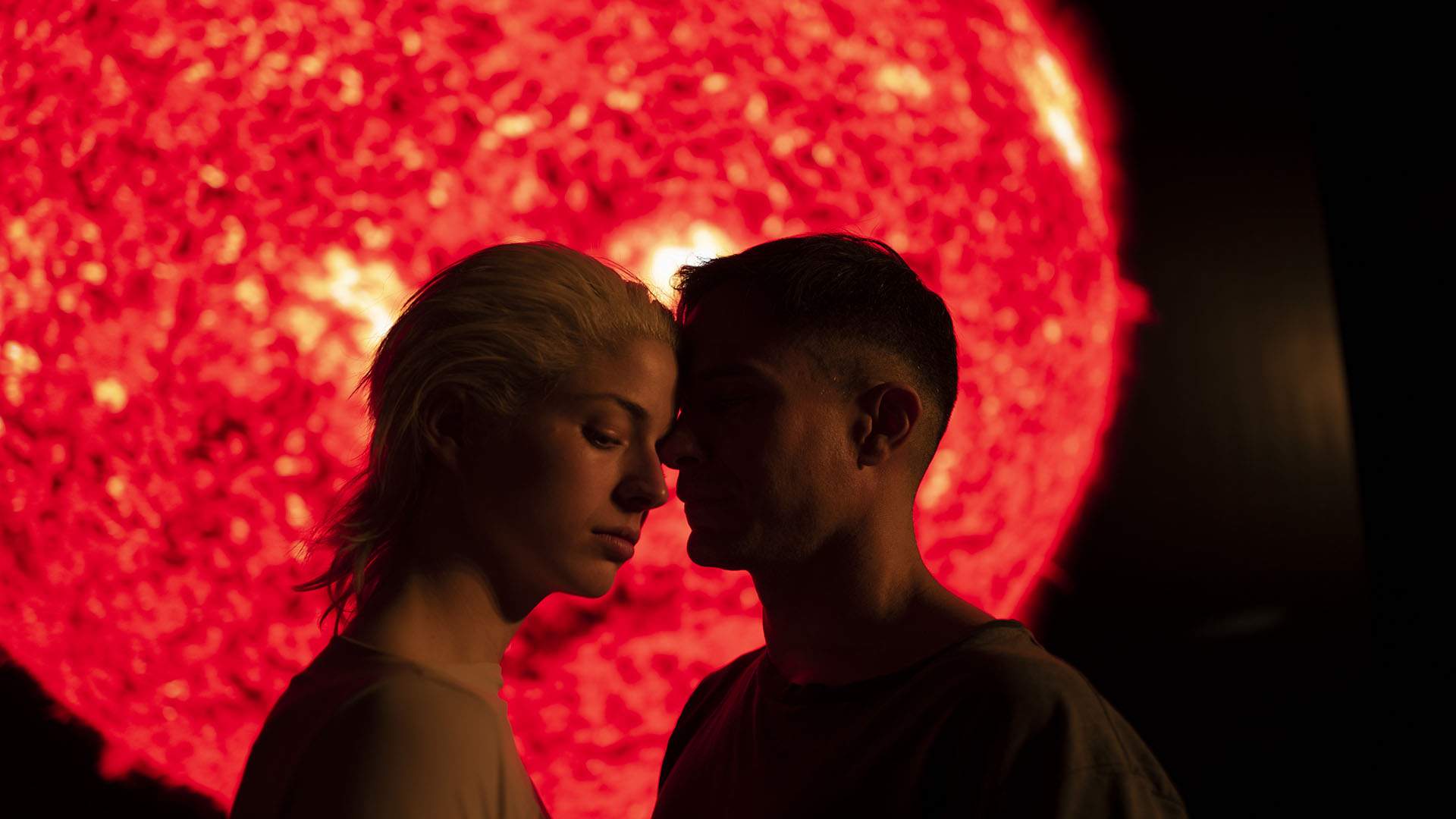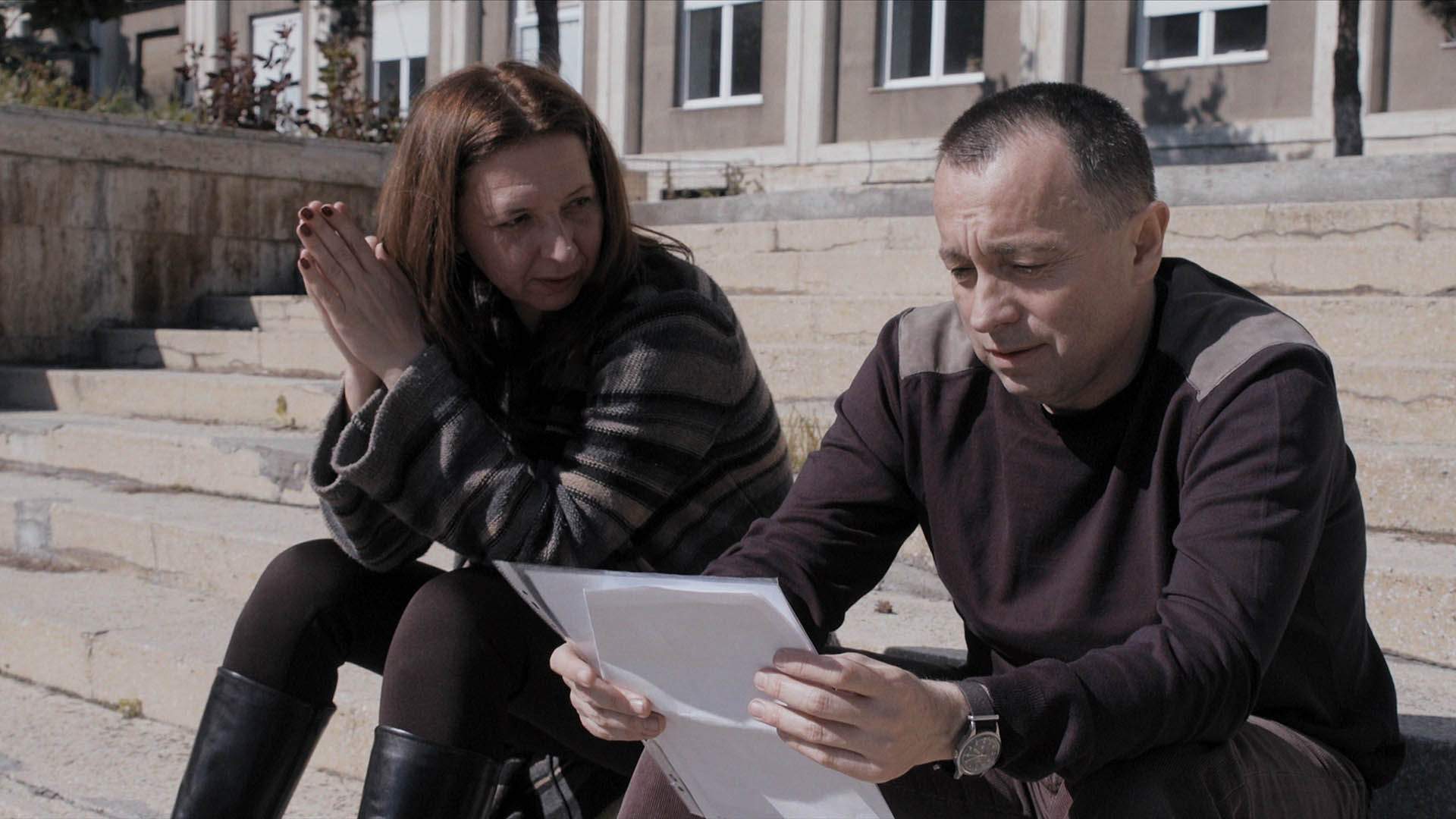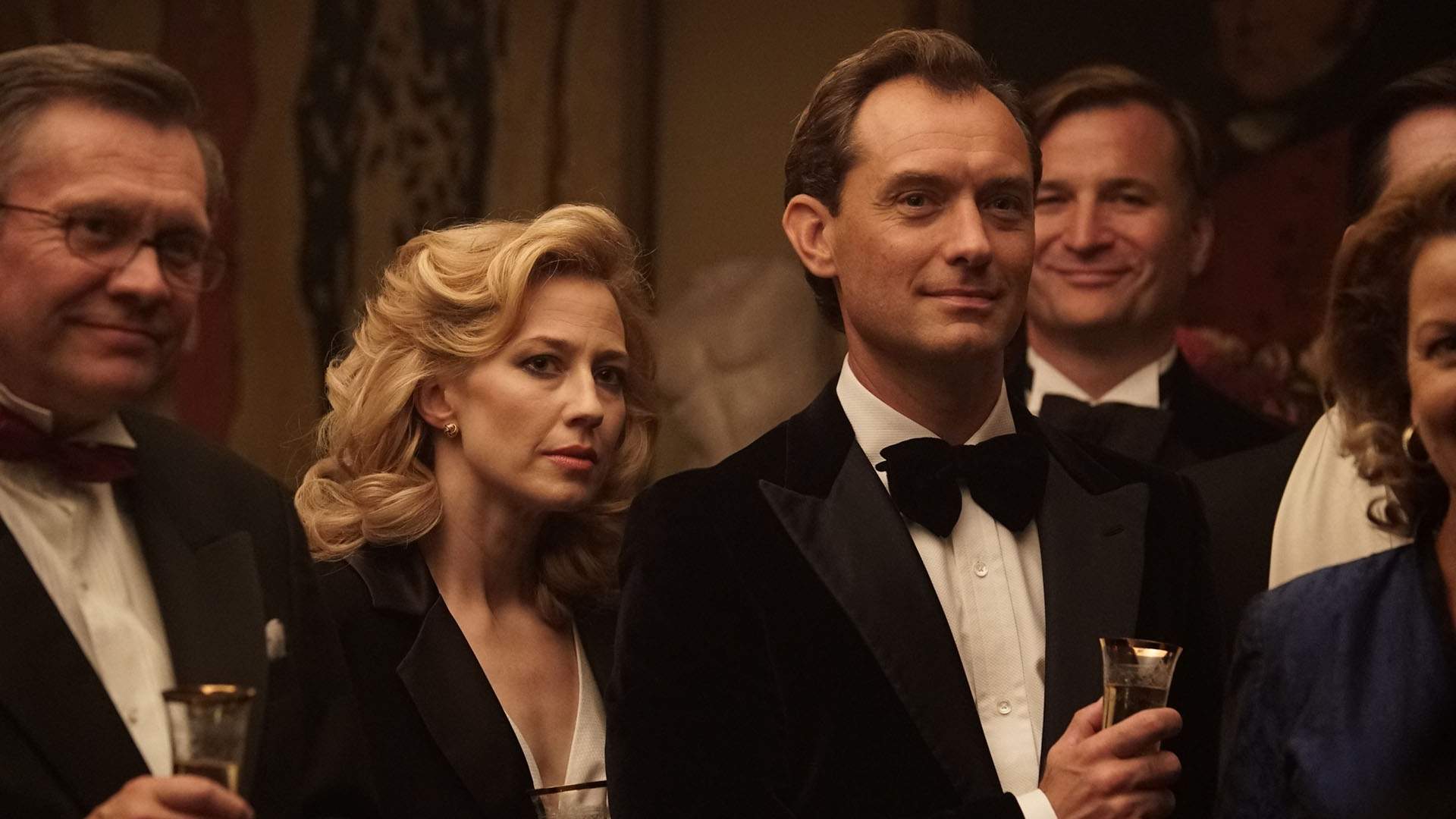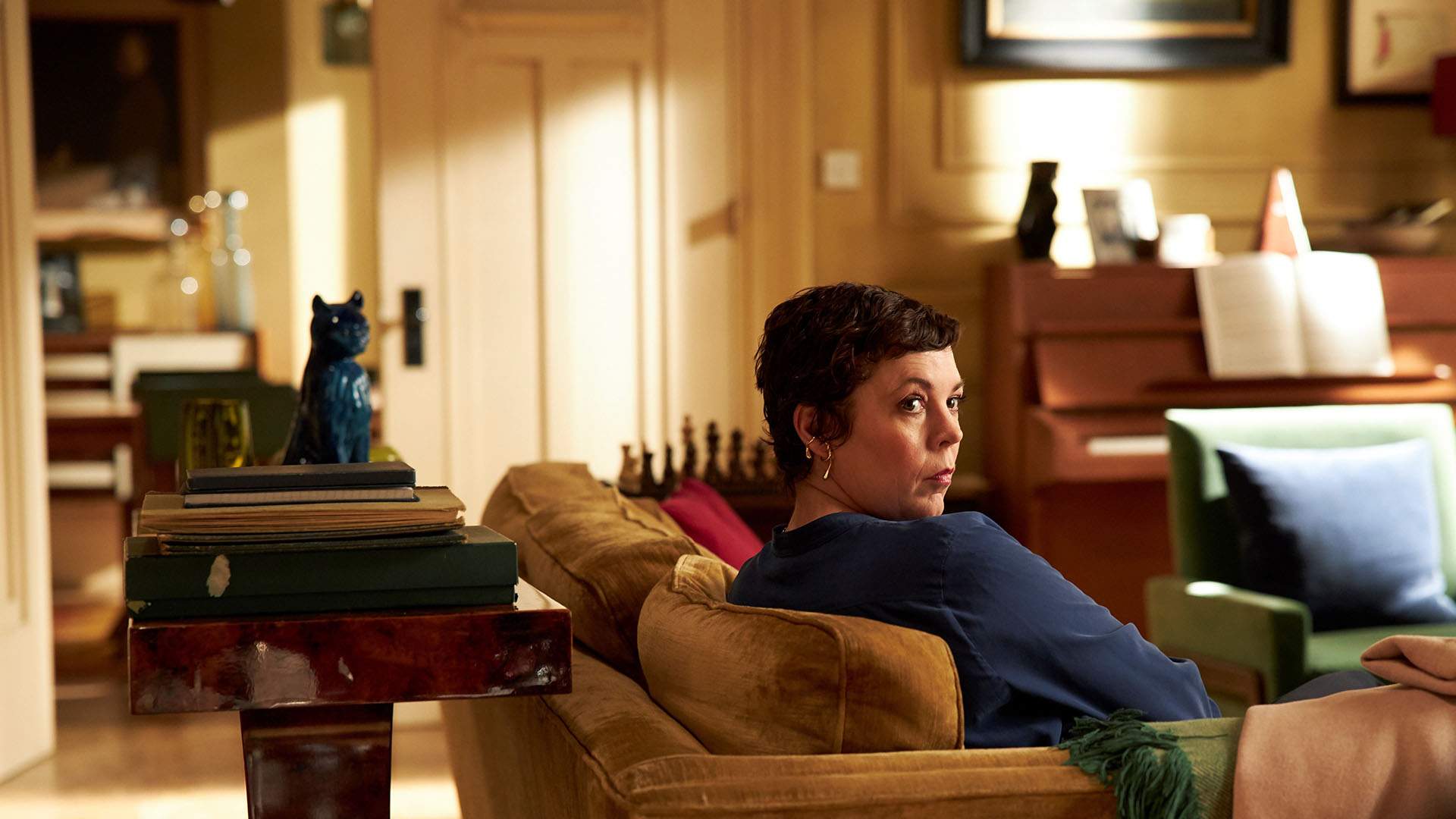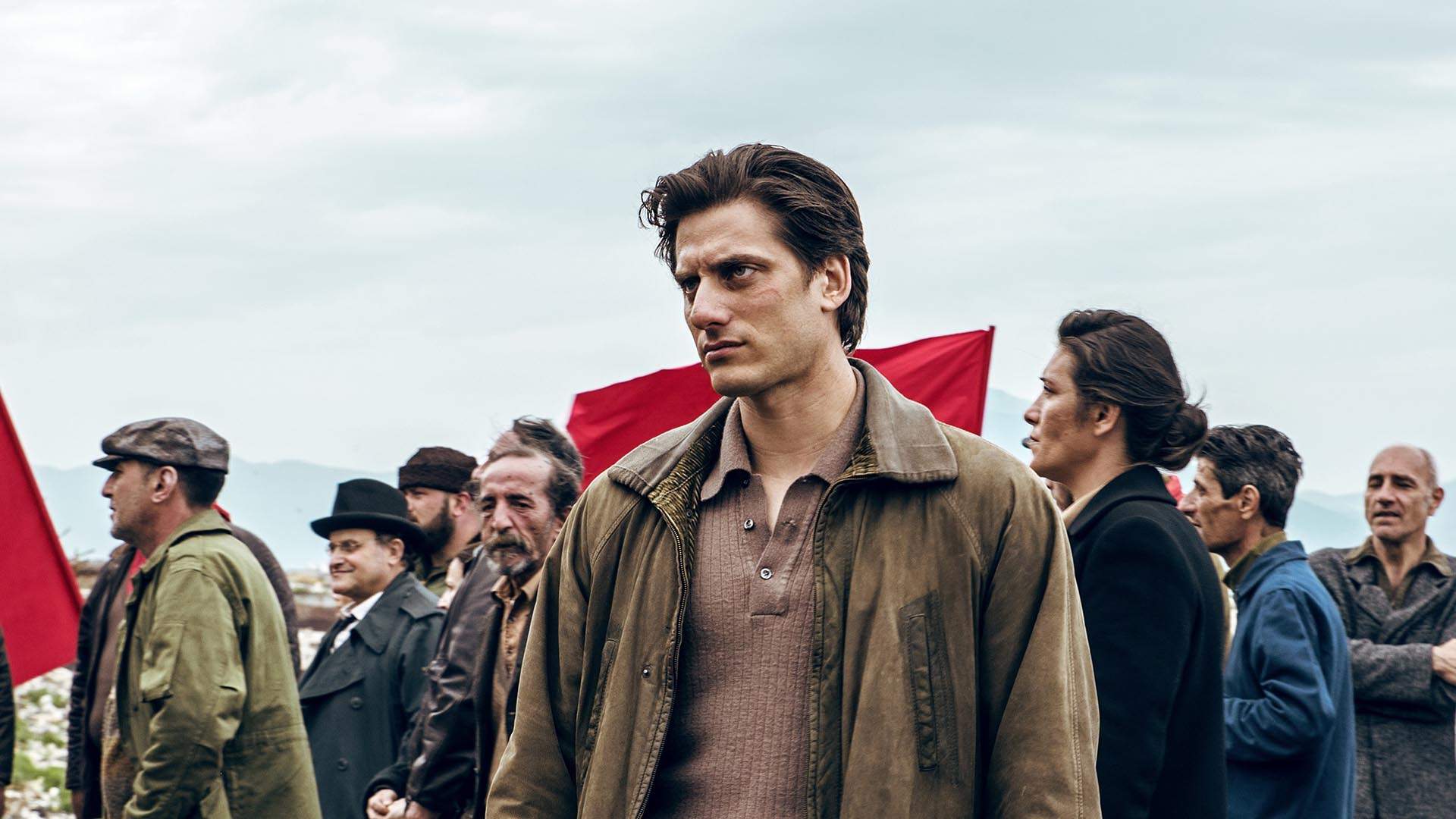The 12 Best Films of 2021 So Far
This year has only just reached the halfway point, but it has already delivered plenty of big-screen gems — here's what you need to see.
Every year is a good year for movies. Every year delivers must-see highlights, flat-out masterpieces and films so good that they become your instant favourites. The flicks change — the names, stars and plots, too — but there's simply no such thing as a bad year for cinema. Because so many titles get released each year, there's always going to be a big batch of gems brightening up the big screen. There'll be terrible movies as well, but that just comes with the territory.
2021 is only halfway through, and it's already a good year for movies. It's a great, excellent and downright stellar year, in fact. Plenty of the films that've made their way to cinemas across the past six months came out last year overseas, but that doesn't matter — a fantastic movie remains just that no matter when it reaches viewers.
Some of this year's cinematic highlights so far have already won shiny trophies for their efforts. Others just might in the future. Either way, here's the 12 overwhelming exceptional films that've proven 2021's best already. If you haven't seen them all, consider this your must-watch list for before the year is out.

PROMISING YOUNG WOMAN
Promising Young Woman would've made an excellent episode or season of Veronica Mars. That's meant as the highest compliment to both the bubblegum-hued take on the rape-revenge genre and the cult-status private detective series. Writer/director Emerald Fennell clearly isn't blind to the parallels between the two, even casting Veronica Mars stars Max Greenfield (New Girl) and Chris Lowell (GLOW) in her feature debut. Don't go thinking the Killing Eve season two showrunner and The Crown actor is simply following in other footsteps, though. At every moment, the brilliant and blistering Promising Young Woman vibrates with too much anger, energy and insight to merely be a copycat of something else. It's a film made with the savviest of choices, and provocative and downright fearless ones as well, in everything from its soundtrack to its weaponised pastel, peppy and popping Instagram-friendly imagery. You don't include Italian quartet Archimia's orchestral version of Britney Spears' 'Toxic', Paris Hilton's 'Stars Are Blind' and an abundance of vibrant surface sheen in a movie about a woman waging war on the culture of sexual assault without trying to make a statement — and Fennell succeeds again and again. She has also made the smart decision to cast Carey Mulligan, and to draw upon the acclaimed actor's near-peerless ability to express complex internalised turmoil. Mulligan's fierce lead performance scorches, sears and resounds with such burning truth, and so does the feature she's in as a result.
When Mulligan's character, Cassie Thomas, is introduced, she's inebriated and alone at a nightclub, her clothing riding up as she slouches in her seat. Three men discuss women over beverages by the bar, and notice Cassie while talking, with one commenting, "they put themselves in danger, girls like that". No woman brings sexual assault upon themselves, with this whole intelligent and astute revenge-thriller rebuffing the bro-ish bar guy's early observation in every way possible, and meting out punishment to those who think similarly. As viewers see in the film's opening sequence, Cassie is offered help by one of the chatting guys, Jerry (The OC's Adam Brody), who is concerned she could be taken advantage of by men who aren't as nice as him — but then takes her home, makes sexual advances, and learns that the medical school dropout-turned-coffee shop employee he's trying to bed has a lesson for him. Colour-coded names and tallies scrawled in a notebook illustrate this isn't a first for Cassie. The script drip-feeds details about its protagonist's motivations for her ritualistic actions; however, the specifics aren't hard to guess. Cassie's central vigilante quest is forced to adapt after she hears news about someone from her past, and the movie takes her to bold places, boasting a relentlessness that mirrors the persistence of grief and pain after trauma. Promising Young Woman never lets its protagonist's rage subside, proving furious from start to finish — and sharing that feeling even in the film's most overt setups and obvious scenes (which are also some of its most entertaining) is a foregone conclusion.
Read our full review.

FIRST COW
Gone are the days when every image that flickered across the screen did so within an almost square-shaped frame. That time has long passed, in fact, with widescreen formats replacing the 1.375:1 Academy aspect ratio that once was standard in cinemas, and its 4:3 television counterpart. So, when a director today fits their visuals into a much tighter space than the now-expansive norm, it's an intentional choice. They're not just nodding to the past, even if their film takes place in times gone by. With First Cow, for instance, Kelly Reichardt unfurls a story set in 19th-century America, but she's also honing her audience's focus. The Meek's Cutoff, Night Moves and Certain Women filmmaker wants those guiding their eyeballs towards this exquisite movie to truly survey everything that it peers at. She wants them to see its central characters — chef Otis 'Cookie' Figowitz (John Magaro, Overlord) and Chinese entrepreneur King-Lu (Orion Lee, Zack Snyder's Justice League) — and to realise that neither are ever afforded such attention by the others in their fictional midst. Thoughtfully exploring the existence of figures on the margins has long been Reichardt's remit, as River of Grass, Old Joy and Wendy and Lucy have shown as well, but she forces First Cow's viewers to be more than just passive observers in this process.
There's much to take in throughout this magnificently told tale, which heads to Oregon as most of Reichardt's movies have. In its own quiet, closely observed, deeply affectionate and warm-hearted fashion, First Cow is a heist movie, although the filmmaker's gentle and insightful spin on the usually slick and twist-filled genre bucks every convention there is. Initially, after watching an industrial barge power down a river, First Cow follows a woman (Alia Shawkat, Search Party) and her dog as they discover a couple of skeletons nearby. Then, jumping back two centuries and seeing another boat on the same waterway, it meets Cookie as he's searching for food. Whatever he finds, or doesn't, the fur-trapper team he works with never has a kind word to spare. But then Cookie stumbles across King-Lu one night, helps him evade the Russians on his tail, and the seeds of friendship are sown. When the duo next crosses paths, they spend an alcohol-addled night sharing their respective ideas for the future. Those ambitious visions get a helping hand after the Chief Factor (Toby Jones, Jurassic Park: Fallen Kingdom) ships in the region's highly coveted first cow, with Cookie and King-Lu secretly milking the animal in the dark of night, then using the stolen liquid to make highly sought-after — and highly profitable — oily cakes.
Read our full review.

EMA
Before 2021 comes to an end, Pablo Larraín will have given the world Spencer, a new biopic about Princess Diana featuring Kristen Stewart as the royal figure. Also on his hit list this year: the just-released Lisey's Story, a Julianne Moore-starring TV adaptation of a Stephen King book that has been scripted for the screen by the author himself. But with Ema, he's already gifted viewers something exceptional — and something that'll be hard to beat. A new project by Larraín is always cause for excitement, and this drama about a reggaeton dancer's crumbling marriage, personal and professional curiosities, and determined quest to become a mother rewards that enthusiasm spectacularly. In fact, it's a stunning piece of cinema, and one that stands out even among the Chilean director's already impressive resume. He's the filmmaker behind stirring political drama No, exacting religious interrogation The Club, poetic biopic Neruda and the astonishing, Natalie Portman-starring Jackie — to name just a few of his movies — so that's no minor feat. For the first time in his career, Larraín peers at life in his homeland today, rather than in the past. And, with his now six-time cinematographer Sergio Armstrong (Tony Manero, Post Mortem), he gazes as intently as he can. Faces and bodies fill Ema's frames, a comment that's true of most movies; however, in both the probing patience it directs its protagonist's way and the kinetic fluidity of its dance sequences, this feature equally stares and surveys.
Here, Larraín hones in on the dancer (Mariana Di Girólamo, Much Ado About Nothing) who gives the feature its name. After adopting a child with her choreographer partner Gastón (Gael García Bernal, Mozart in the Jungle), something other than domestic bliss has followed. Following a traumatic incident, and the just as stressful decision to relinquish their boy back to the state's custody, Ema is not only trying but struggling to cope in the aftermath. This isn't a situation she's simply willing to accept, though. Ema, the movie, is many things — and, most potently, it's a portrait of a woman who is willing to make whatever move she needs to, both on the dance floor and in life, to rally against an unforgiving world, grasp her idea of freedom and seize exactly what she wants. Di Girólamo is magnetic, whether she's dancing against a vivid backdrop, staring pensively at the camera or being soaked in neon light. Bernal, one of the director's regulars, perfects a thorny role that ties into the film's interrogation of Chile's class and cultural divides. And Larraín's skill as both a visual- and emotion-driven filmmaker is never in doubt. Indeed, this film's imagery isn't easily forgotten, and neither is its mood, ideas, inimitable protagonist, or stirring exploration of trauma, shock and their impact.
Read our full review.

MINARI
Although they can frequently seem straightforward, films about the American dream aren't simply about chasing success. The circumstances and details change, but they're often movies about finding a place to call home as well. Such a quest isn't always as literal as it sounds, of course. While houses can signify achievement, feeling like you truly belong somewhere — and that you're comfortable enough to set your sights on lofty goals and ambitions that require considerable risks and sacrifices — transcends even the flashiest or cosiest combination of bricks and mortar. Partly drawn from writer/director Lee Isaac Chung's (Abigail Harm) own childhood, Minari understands this. It knows that seeking a space to make one's own is crucial, and that it motivates many big moves to and within the US. So, following a Korean American couple who relocate to rural Arkansas in the 80s with hopes of securing a brighter future for their children, this delicately observed and deeply felt feature doesn't separate the Yi family's attempts to set up a farm from their efforts to feel like they're exactly where they should be. The result is a precise, vivid, moving, and beautifully performed and observed film told with honest and tender emotion — so much so that it was always bound to be equally universal and unique.
When Jacob Yi (Steven Yeun, Burning) introduces his wife Monica (Yeri Han, My Unfamiliar Family), pre-teen daughter Anne (first-timer Noel Cho) and seven-year-old son David (fellow newcomer Alan S Kim) to their new 50-acre plot, he's beaming with pride. He's bought them "the best dirt in America," he says. It might only span a trailer, a field and a creek, but he's certain that it will revolutionise their lives. Although both Jacob and Monica still spend their days in a chicken sexing factory to pay the bills, Jacob is confident his agrarian dream will reap rewards. The path he's chosen isn't a glossy fantasy, though. From trying to work out where best to build a well to provide water for his crops, to endeavouring to convince stores to buy his wares, Jacob weathers more than his fare share of struggles. Monica's worries about their isolation, and about money, also weigh heavily, as she'd rather live in a larger city as part of the Korean diaspora. Also joining their daily woes in a movie that eschews overt conflicts for everyday dramas: Anne and David's attempts to fit in, the latter's heart murmur and the change that sweeps through the family when Monica's mother Soonja (Youn Yuh-jung, Sense8) comes to live with them.
Read our full review.

GUNDA
Move over Babe, Piglet, Porky and Peppa. Thanks to monochrome-hued documentary Gunda, cinema has a brand new porcine star. Or several, to be exact; however, other than the eponymous sow, none of the attention-grabbing pigs in this movie are given names. If that feels jarring, that's because it breaks from film and television's usual treatment of animals. Typically on-screen, we see and understand the zoological beings we share this planet with as only humans can, filtering them through our own experience, perception and needs. We regard them as companions who become our trustiest and most reliable friends; as creatures who play important roles in our lives emotionally, physically and functionally; as anthropomorphised critters with feelings and traits so much like ours that it seems uncanny; and as worthy targets of deep observation or study. We almost never just let them be, though. Whether they're four-legged, furry, feathered or scaly, animals that grace screens big and small rarely allowed to exist free from our two-legged interference — or from our emotions, expectations or gaze. Gunda isn't like any other movie you've seen about all creatures great and small, but it can't ignore the shadow that humanity casts over its titular figure, her piglets, and the one-legged chicken and paired-off cows it also watches, either. It's shot on working farms, so it really doesn't have that luxury. Still, surveying these critters and their lives without narration or explanation, this quickly involving, supremely moving and deeply haunting feature is happy to let the minutiae of these creatures' existence say everything that it needs to.
The delights and devastation alike are in the details, and the entire movie is filled with both. Filmmaker Victor Kossakovsky (Aquarela) looks on as Gunda's namesake gives birth, and as her offspring crawl hungrily towards her before they've even properly realised that they're now breathing. His film keeps peering their way as they squeal, explore and grow, and as they display their inquisitive, curious and sometimes mischievous personalities, too. Sometimes, this little family rolls around in the mud. At other times, they simply sleep, or Gunda takes the opportunity to enjoy some shut-eye while her piglets play. Whatever they're doing, and whenever and where, these pigs just going about their business, which the feature takes in frame by frame. In one of the documentary's interludes away from its porcine points of focus, the aforementioned chook hops about. Whether logs or twigs are involved, it too is just navigating its ordinary days. In the second of the movie's glimpses elsewhere, cattle trot and stand, and their routine couldn't seem more commonplace as well.
Read our full review.

ANOTHER ROUND
Even the most joyous days and nights spent sipping your favourite drink can have their memory tainted by a hangover. Imbibe too much, and there's a kicker just waiting to pulsate through your brain and punish your body when all that alcohol inevitably starts to wear off. For much of Another Round, four Copenhagen school teachers try to avoid this feeling. The film they're in doesn't, though. It lays bare the ups and downs of knocking back boozy beverages, and it also serves up a finale that's a sight to behold. Without sashaying into spoiler territory, the feature's last moments are a thing of sublime beauty. Some movies end in a WTF, "what were they thinking?" kind of way, but this Oscar-winning Danish film comes to a conclusion with a big and bold showstopper that's also a piece of bittersweet perfection. The picture's highest-profile star, Mads Mikkelsen (Arctic), is involved. His pre-acting background as an acrobat and dancer comes in handy, too. Unsurprisingly, the substances that flow freely throughout the feature remain prominent. And, so does the canny and candid awareness that life's highs and lows just keep spilling, plus the just-as-shrewd understanding that the line between self-sabotage and self-release is as thin as a slice of lemon garnishing a cocktail.
That's how Another Round wraps up, in one the many masterstrokes poured onto the screen by writer/director Thomas Vinterberg (Kursk) and his co-scribe Tobias Lindholm (A War). The film's unforgettable finale also expertly capitalises upon a minor plot detail that viewers haven't realised had such significance until then, and that couldn't typify this excellent effort's layered approach any better. But, ending with a bang isn't the movie's only achievement. In fact, it's full of them. The picture's savvy choices start with its premise, which sees the quiet and reserved Martin (Mikkelsen) and his fellow educators Tommy (Thomas Bo Larsen, Veni Vidi Vici), Peter (Lars Ranthe, Warrior) and Nikolaj (Magnus Millang, The Commune) all decide to put an out-there theory to the test. Motivated by real-life Norwegian psychiatrist Finn Skårderud, they conduct an experiment that involves being permanently sauced. Skårderud has hypothesised that humans are born with a blood alcohol deficit of 0.05 percent, so, with some cajoling needed on Martin's part, the quartet work that idea into their daily lives. Ground rules are established, and the shots, sneaky sips and all-hours drinking swiftly begins — and so splashes a tragicomic look at coping with mundane lives and the realities of getting older in an extreme fashion that's frank, unflinching, and yet also warm and sometimes humorous.
Read our full review.

COLLECTIVE
We can only hope that one day, likely in a far distant future, documentaries will stop doubling as horror films. That time hasn't arrived yet — and as Collective demonstrates, cinema's factual genre can chill viewers to the bone more effectively than most jump- and bump-based fare. Nominated for Best Documentary Feature and Best International Feature at the 2021 Academy Awards (only the second time that's ever happened, after last year's Honeyland), this gripping and gut-wrenching Romanian doco starts with a terrible tragedy. On October 30, 2015, a fire broke out at a metal gig in Bucharest, at a club called Colectiv. Twenty-seven people died in the blaze, and 180 people were injured as they tried to escape via the site's lone exit; however, that's just the beginning of the movie's tale. In the four months afterwards, as burn victims were treated in the country's public hospitals, 37 more passed away. When journalist Cătălin Tolontan and his team at The Sports Gazette started investigating the fire's aftermath and the mounting casualty list, they uncovered not only widespread failures throughout Romania's health system, but also engrained corruption as well. This truly is nightmare fuel; if people can't trust hospitals to act in their patients' best interest after such a sizeable disaster, one of the fundamental tenets of modern society completely collapses.
Early in Collective, director, writer, cinematographer and editor Alexander Nanau (Toto and His Sisters) shows the flames, as seen from inside the club. When the blaze sparks from the show's pyrotechnics, hardcore band Goodbye to Gravity has just finished singing about corruption. "Fuck all your wicked corruption! It's been there since our inception but we couldn't see," the group's singer growls — and no, you can't make this up. It's a difficult moment to watch, but this is a film filled with unflinching sights, and with a viscerally unsettling story that demands attention. Nanau occasionally spends time with the bereaved and angry parents of victims of the fire, even bookending the documentary with one man's distress over the "communication error" that contributed to his son's death. The filmmaker charts a photo shoot with Tedy Ursuleanu, a survivor visibly scarred by her ordeal, too. And yet, taking an observational approach free from narration and interviews, and with only the scantest use of text on-screen, Collective's filmmaker lets much of what's said rustle up the majority of the movie's ghastliest inclusions.
Read our full review.

THE NEST
Before watching The Nest, you mightn't have imagined Jude Law playing Mad Men's Don Draper. He didn't, of course. But this new 80s-set psychological thriller about a corroding marriage brings that idea to mind, because it too follows a man who spends his days selling a dream, thinks he can talk and charm his way into anything, and may have unleashed his biggest spin upon himself. More often than not, Law's character here has used his charisma to get whatever he wants, and to evade whichever sticky personal and professional situations he's plunged himself into. Indeed, stock trader Rory O'Hara slides easily into Law's list of suave on-screen roles, alongside the likes of The Talented Mr Ripley and Alfie. But there's also a tinge of desperation to his arrogance, as the actor showcased well in miniseries The Third Day. A Brit who relocated to New York and married horse trainer Allison (Carrie Coon, Widows), Rory looks the picture of Reagan-era affluence but, when he suddenly wants to return to London to chase new work opportunities, the cracks in his facade start widening. As directed with a heightened sense of dread by Martha Marcy May Marlene filmmaker Sean Durkin, The Nest busts open those fractures, with Allison, her teenage daughter Sam (Oona Roche, Morning Wars) and her son Ben (Charlie Shotwell, The Nightingale) all weathering the repercussions.
While it's obvious from the outset that trouble is afoot, Durkin isn't in any rush to unleash The Nest's full nightmare. He wants his viewers to linger in it, because his characters must. Allison is forced to live with the knowledge that little is right, but the way she chain-smokes hurriedly illustrates that she also knows how far her fortunes could fall. Every move Rory makes is driven by his need to paint a gleaming portrait of himself, and he knows that it's a reverse Dorian Gray situation: the shinier and flashier he makes everything seem to anyone who'll listen, the more he rots inside. Durkin doesn't just rely upon an exacting pace and a festering mood of gloom, though. Reuniting with cinematographer Mátyás Erdély (Son of Saul) after 2013 miniseries Southcliffe, he gives every second of The Nest an eerie look — whether staying a few beats longer than normal on its opening shot, lensing vast rooms to emphasise their emptiness, repeatedly peering at the film's characters through glass or breaking out the most gradual of zooms. All that tension and unease conveys not only Rory and Allison's domestic discontent, but also the false promises of chasing capitalism-driven fantasies. And, with Coon as essential as Law and Durkin, it drives an excellent thriller that knows how how gut-wrenching it feels to realise that the life you don't even love is a sham.
Read our full review.

SYNCHRONIC
Justin Benson and Aaron Moorhead made a significant splash in genre circles with 2014's horror-romance Spring and 2017's excellent cult thriller The Endless, but they aren't currently household names. If the duo keep writing and directing mind-bending sci-fi like Synchronic, though, they will be sooner rather than later. The pair actually appear destined to become better known via Marvel. They're slated to helm one of the MCU's many upcoming Disney+ TV series, the Oscar Isaac-starring Moon Knight, in fact. But, they've already worked their way up from the US$20,000 budget of their 2012 debut Resolution to making movies with Anthony Mackie and Jamie Dornan. Here, with Marvel's own Falcon and Fifty Shades of Grey's leading man, they play with time, relativity, fate and brain-altering substances. They ponder the shadows that the past leaves on the present, the way that progressing through life can feel far more like a stumble than following a clear path, and how confronting loss and death can reframe your perspective on living, too. Those temporal jumps and existential themes aren't new, of course, and neither is the film's steely look and feel, and its willingness to get dark. That's the thing about Benson and Moorhead, however: few filmmakers can twist familiar parts into such a distinctive, smart and engaging package in the same way, and with each and every one of their movies.
Synchronic shares its title with a designer drug. In the film's vision of New Orleans, the hallucinogen can be bought in stores — and plenty of people are doing just that. Shift after shift, paramedics Steve Denube (Mackie) and Dennis Dannelly (Dornan) find themselves cleaning up the aftermath, as users keep overdosing, dying in unusual ways and getting injured in strange mishaps. And, these aren't your usual drug-fuelled incidents. One, involving a snakebite, happens in a hotel without even the slightest sign of slithering reptiles. That's enough to arouse the world-wearied Steve and Dennis' interest, and to give them something to talk about other than the former's attachment-free life and the latter's marriage. Then Dennis' teenage daughter Brianna (Ally Ioannides, Into the Badlands) goes missing, and the two EMTs are instantly keen to investigate any links that the popular pill might have to her disappearance. Cue a film that initially drips with tension, dread and intensity; uses every tool at its disposal to take viewers on a trippy journey; and grounds its surreal imagery and off-kilter atmosphere in genuine emotions. Each of Benson and Moorhead's four films so far are strikingly shot and astutely written, and rank among the best horror and sci-fi efforts of the past decade, but they're also as thoughtful and resonant as they are intelligent and ambitious — and that's an irresistible combination.
Read our full review.

THE FATHER
Forgetting, fixating, flailing, fraying: that's The Father. Anthony's (Anthony Hopkins, Westworld) life is unravelling, with his daughter Anne (Olivia Colman, The Crown) springing the sudden news that she's about to move to Paris, and now insistent that he needs a new carer to replace the last home helper he's just scared off. He also can't find his watch, and time seems to jump suddenly. On some days, he has just trundled out of bed to greet the morning when Anne advises that dinner, not breakfast, is being served. When he brings up her French relocation again, she frostily and dismissively denies any knowledge. Sometimes another man (Mark Gatiss, Dracula) stalks around Anthony's London apartment, calling himself Anne's husband. Sometimes the flat isn't his own at all and, on occasion, both Anne (Olivia Williams, Victoria and Abdul) and her partner (Rufus Sewell, Judy) look completely different. Intermittently, Anthony either charms or spits cruel words at Laura (Imogen Poots, Black Christmas), the latest aide hired to oversee his days. She reminds him of another daughter, one he's sure he had — and preferred — but hasn't heard from for years. When he mentions his other offspring, however, everyone else goes silent. More than once, Anthony suspects that someone has pilfered his beloved timepiece, which just keeps disappearing.
Largely, The Father remains housebound. For the bulk of its 97 minutes, it focuses on the cardigan-wearing Anthony as he roams around the space he calls home. But this is a chaotic film, despite its visual polish, and that mess, confusion and upheaval is entirely by design. All the shifting and changing — big and small details alike, and faces and places, too — speak to the reason Anne keeps telling Anthony they need another set of hands around the house. His memory isn't what it used to be. In fact, it's getting much worse than that. Anthony knows that there's something funny going on, which is how he describes it when his sense of what's happening twists and morphs without warning, and The Father's audience are being immersed in that truth. Anthony has dementia, with conveying precisely how that feels for him the main aim of this six-time Oscar-nominated stage-to-screen adaptation. As overwhelming as The Father can be as it wades through Anthony and Anne's lives, its unflinching and unsparing approach is anchored in kindness and compassion, which novelist and playwright turned first-time director Florian Zeller has brought to the screen in a stunning fashion from Le Père, his own play.
Read our full review.

MARTIN EDEN
The last time that one of Jack London's books made the leap to cinema screens — just last year, in fact — it wasn't a pleasant viewing experience. Starring Harrison Ford and a CGI dog, The Call of the Wild forced viewers to watch its flesh-and-blood lead pal around with a needlessly anthropomorphised canine, to groan-inducingly cheesy results. Martin Eden is a much different book, so it could never get the same treatment. With his radiant imagery, masterful casting and bold alterations to the source material, writer/director Pietro Marcello (Lost and Beautiful) makes certain that no one will confuse this new London adaption for the last, however. The Italian filmmaker helms a compelling, complicated, ambitious and unforgettable film, and one that makes smart and even sensuous choices with a novel that first hit shelves 112 years ago. The titular character is still a struggling sailor who falls in love with a woman from a far more comfortable background than his. He still strives to overcome his working-class upbringing by teaching himself to become a writer. And, he still finds both success and scuffles springing from his new profession, with the joy of discovering his calling, reading everything he can and putting his fingers to the typewriter himself soon overshadowed by the trappings of fame, a festering disillusionment with the well-to-do and their snobbery, and a belief that ascribing worth by wealth is at the core of society's many problems.
As a book, Martin Eden might've initially reached readers back in 1909, but Marcello sees it as a timeless piece of literature. He bakes that perception into his stylistic choices, weaving in details from various different time periods — so viewers can't help but glean that this tale just keeps proving relevant, no matter the year or the state of the world. Working with cinematographers Alessandro Abate (Born in Casal Di Principe) and Francesco Di Giacomo (Stay Still), he helms an overwhelmingly and inescapably gorgeous-looking film, too. When Martin Eden is at its most heated thematically and ideologically, it almost feels disquieting that such blistering ideas are surrounded by such aesthetic splendour, although that juxtaposition is wholly by design. And, in his best flourish, he enlists the magnetic Luca Marinelli (The Old Guard) as his central character. In a performance that won him the Best Actor award at the 2019 Venice Film Festival, Marinelli shoulders the eponymous figure's hopes, dreams and burdens like he's lived them himself. He lends them his soulful stare as well. That expression bores its way off the screen, and eventually sees right through all of the temptations, treats and treasures that come Eden's way. Any movie would blossom in its presence; Martin Eden positively dazzles, all while sinking daggers into the lifetime of tumult weathered by its titular everyman.

IN THE HEIGHTS
Lin-Manuel Miranda isn't the first lyricist to pen tunes so catchy that they get stuck in your head for years (yes, years), but his rhythmic tracks and thoughtful lines always stand out. Miranda's songs are melodic and snappy, as anyone who has seen Hamilton onstage or via streaming definitely knows. The multi-talented songwriter's lyrics also pinball around your brain because they resonate with such feeling — and because they're usually about something substantial. The musical that made his name before his date with US history, In the Heights echoes with affection for its eponymous Latinx New York neighbourhood. Now that it's reverberating through cinemas, its sentiments about community, culture, facing change and fighting prejudice all seem stronger, too. To watch the film's characters sing about their daily lives and deepest dreams in Washington Heights is to understand what it's like to feel as if you truly belong in your patch of the city, to navigate your everyday routine with high hopes shining in your heart, and to weather every blow that tries to take that turf and those wishes away. That's what great show tunes do, whisking the audience off on both a narrative and an emotional journey. Miranda sets his words to hip hop beats, but make no mistake: he writes barnstorming songs that are just as rousing and moving, and that've earned their place among the very best stage and screen ditties as a result.
Watching In the Heights, it's hard not to think about all those stirring tracks that've graced previous musicals. That isn't a sign of derivation here, though. Directing with dazzling flair and a joyous mood, Crazy Rich Asians filmmaker Jon M Chu nods to cinema's lengthy love affair with musicals in all the right ways. His song-and-dance numbers are clearly influenced by fellow filmic fare, and yet they recall their predecessors only because they slide in so seamlessly alongside them. Take his staging of '96000', for instance. It's about winning the lottery, after word filters around that bodega owner Usnavi (Anthony Ramos, a Hamilton alum) has sold a lucky ticket. Due to the sweltering summer heat, the whole neighbourhood is at the public pool, which is where Chu captures a colourful sea of performers expressing their feelings through exuberantly shot, staged and choreographed music and movement — and it's as touching and glorious as anything that's ever graced celluloid. Of course, $96,000 won't set anyone up for life, but it'd make an enormous difference to Usnavi, In the Heights' protagonist and narrator. It'd also help absolutely everyone he loves. As he explains long before anyone even hears about the winning ticket, or buys it, every Heights local has their own sueñitos — little dreams they're chasing, such as his determination to relocate to the Dominican Republic. And that's what this intoxicating, invigorating, impassioned and infectious captures with vibrant aplomb.
Read our full review.
